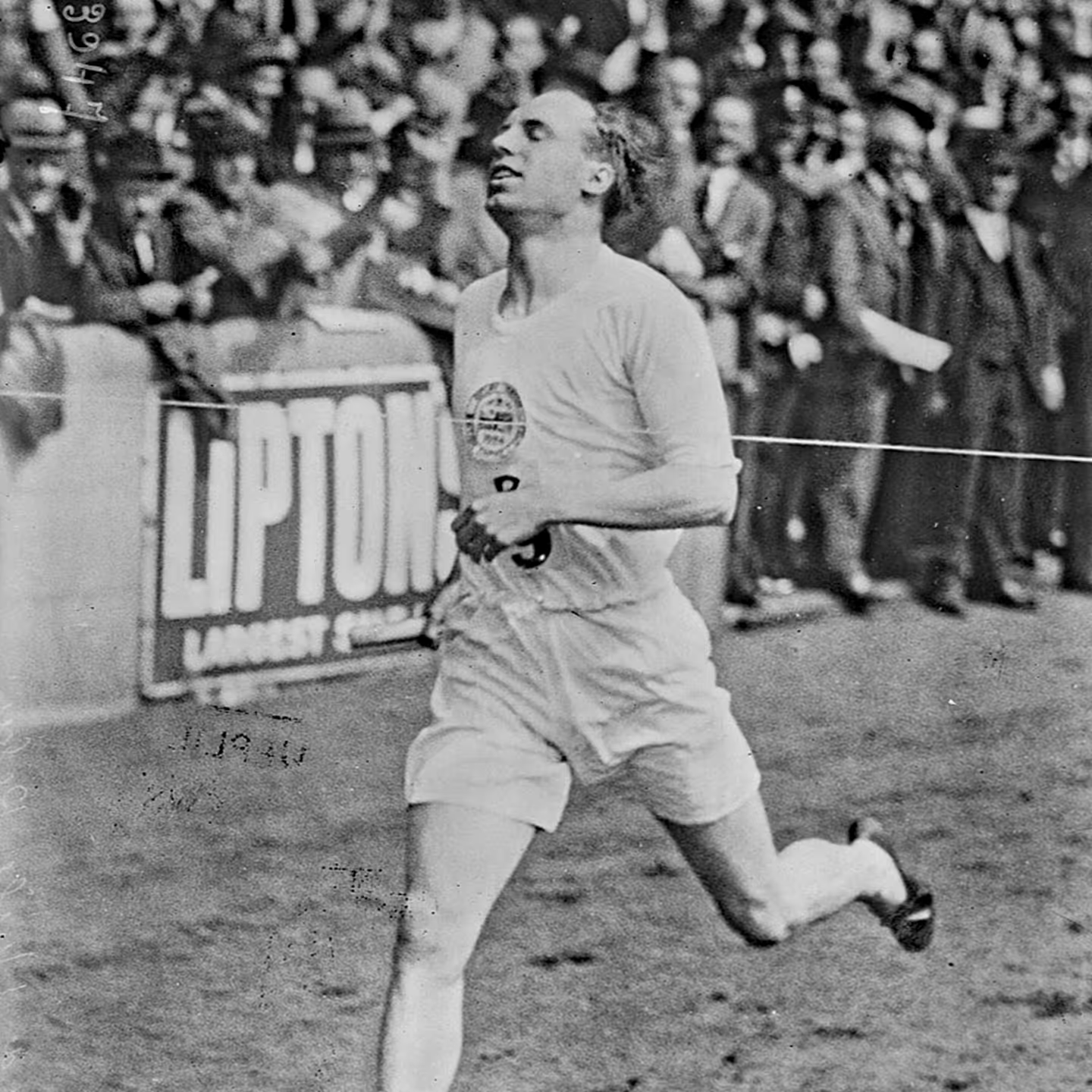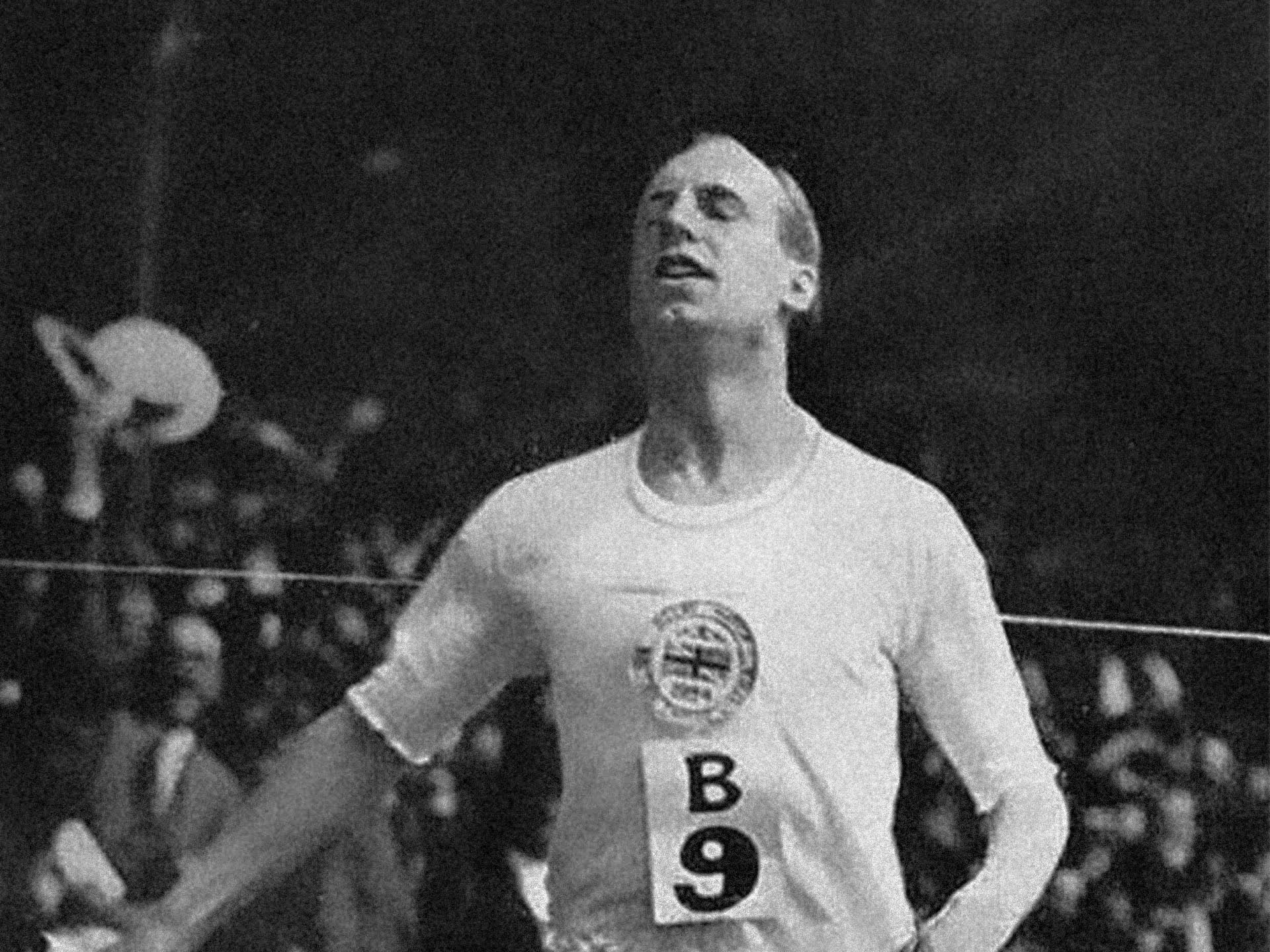Eric Liddell is often remembered as a Christian Olympian, famously portrayed in the film Chariots of Fire. A gifted athlete, Liddell made headlines when he refused to compete in his best event at the 1924 Paris Olympics because it was scheduled on a Sunday. But although his athletic accomplishments brought him international fame, Liddell’s true legacy extends far beyond the track. He served as a missionary to China during the war, spending his final years in an internment camp and suffering for the sake of the gospel. Liddell’s life was marked by conviction, sacrifice, and unwavering devotion to Christ. His story reminds us to run the race set out for us with quiet, faithful obedience to the Lord.
Early Years: A Need for Speed
Eric Liddell was born on January 16, 1902, in Tianjin, China to Scottish missionary parents. When he was six years old, Liddell and his brother were sent to a boarding school in England, while their parents and sister continued their ministry in China.
At Eltham College, Liddell quickly distinguished himself as a remarkable athlete. He became captain of the rugby team and won the prestigious Blackheath Cup. He later joined his brother at the University of Edinburgh, where he became known as the fastest runner in Scotland. Liddell soon dominated the national scene, winning the 100m and 200m, and breaking the British record in the 100m. As the Olympics approached, newspapers began buzzing with predictions about his success.
Olympic Glory
In 1924, Liddell qualified for the Paris Olympics. However, when he learned that the 100m heats were scheduled on a Sunday, he refused to compete. Liddell held the deep conviction that Sunday was the Lord’s Day and should be set apart for worship and rest. Though his decision drew great international backlash, Liddell stood firm in his convictions.
Instead, Liddell decided to focus on the 200m and 400m events. In the 200m, Liddell came in third, earning a bronze medal. On the morning of the 400m finals, a team staff member handed Liddell a piece of paper that said: “In the old book it says: 'He that honours me I will honour.' Wishing you the best of success always.” Deeply encouraged, Liddell stepped on the track with great confidence.
His strategy was simple: “I run the first 200 meters as fast as I can. Then, with God’s help, I run the second 200 meters even faster.” That day, Liddell ran the race of his life, winning the gold medal and breaking the world record. His victory became an international symbol of faith and courage, and he used his platform to share the gospel worldwide.

Returning to China
Despite his fame, Liddell did not bask in the limelight. Though he was offered global fame and comfort, Liddell understood that his life was not his own—he was a servant of Christ, and his goal was to make the gospel known to the ends of the earth.
In 1925, Liddell returned to China to become a missionary. He began teaching at a Chinese-English school for wealthy children. While there, Liddell also used his athletic gifts to train students and assisted his father in ministry within the local church. He spent years living with gospel intentionality—visiting the poor, discipling believers, and sharing the gospel with students and adults alike. In 1934, Liddell married Florence Mackenzie, the daughter of Canadian missionaries. Together, they had three daughters.
When the Japanese invasion intensified, China became increasingly dangerous. In 1941, Liddell sent his wife and daughters to Canada for safety, choosing to remain behind and minister in war-torn regions. He later moved to Xiaozhang, where he cared for the sick and preached the gospel wherever he could.
In 1943, Japanese forces captured the mission station where Liddell was stationed, and he was placed in an internment camp. Conditions at the camp were harsh. Food was scarce, and medical care was limited. Yet even under duress, Liddell remained faithful. He organized Bible classes, taught children, refereed sports events, and settled disputes. His kind and gentle demeanor earned him the title “Uncle Eric.”
Despite being malnourished and overworked, Liddell maintained a joyful attitude and never spoke ill of others. On February 21, 1945, just five months before the camp was liberated, he died from a brain tumor at the age of 43. Many believe that the malnutrition and stress of the camp contributed to his deteriorating health.
Liddell’s Legacy
Even in his final days, Liddell remained faithful to the Lord. He ran the race with endurance, laying aside every weight to follow Christ (Hebrews 12:1-3). He poured out his life daily to make Christ known among the Chinese, choosing sacrifice over comfort, obedience over opportunity, and eternity over earthly success.
Liddell’s athletic accomplishments continue to be honored to this day. He was inducted into the Scottish Sports Hall of Fame in 2002 and the Scottish Rugby Hall of Fame in 2022. Yet far more significant than his medals or accolades is his testimony—a man who ran the race of faith with perseverance, pressing on toward the prize of knowing Christ and making Him known. His story challenges us to live with the same gospel-motivated ambition, laying aside every hindrance to bring the good news to those who have never heard.
Liddell’s life was marked by conviction, sacrifice, and unwavering devotion to Christ. His story reminds us to run the race set out for us with quiet, faithful obedience to the Lord.
